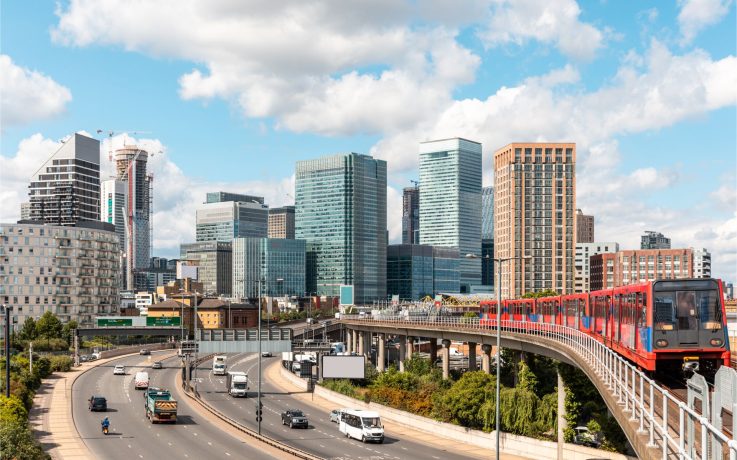Student Accommodation in London

The education system in the United Kingdom is famous for its century-old traditions and relevance in the ever-changing world. British higher education institutions and colleges accept not only UK nationals but also foreign students. Non-British students have to relocate to the UK for the period of their study. Apart from the tuition fee, they have to bear in mind the cost of accommodation, food, transport etc. The heaviest burden is usually rent.
In London, there are over 50 educational institutions that offer courses for about 2.3 million students. Student accommodation is provided by the educational institutions themselves or private landlords. Different options have various price tags, but life in London is pretty expensive anyway.
Key Criteria
The cost of student accommodation in London depends on several “comfort factors”:
- Distance from the city centre;
- Distance from the institution;
- Proximity to shops;
- Bus infrastructure and access to the underground;
- Single or shared occupancy.
You can either live in halls or rent a room or a flat in any London borough. Both options have their advantages and disadvantages.
Renting Property in London
Rental options in London include:
1) A flat, a studio, or a terraced house;
2) Shared accommodation with a communal kitchen, bathroom, etc.
Rental cost depends on the type of property and additional costs. An average monthly rent, including utility bills, is:
- £1,694, in Central or West London;
- £1,045, in South or East London;
- £1,250–£1,475, for a studio or a terraced house;
- £1,000, for a room in Central or West London, and £600, for a room in South or East London.
Additional costs may include furniture: in the UK, you can rent both furnished and unfurnished accommodations. You should pay attention to this before signing your contract. Otherwise, you may find yourself furnishing a rented property yourself. To avoid surprises, you need to discuss the matter with the landlord and find out what you may need to buy. In this way, you will be able, for example, to order things online beforehand and cheaper.
Student halls in London
Some British educational institutions have campuses where students can get a room and share a bathroom, toilet, and kitchen with others. As a rule, campuses are well-equipped and furnished which is a major advantage.
Life in the halls is an experience in itself; it is easier to socialise and make friends based on your interests. You can get help with understanding a complicated topic or preparing for a coming exam.
The price for a room on campus varies from £150 to £300 a week. Note that a university usually guarantees accommodation only for first-year students. The priority is given to foreign students. Not all London universities have their campuses in the first place. Rooms are usually rented out for an academic year with the rent multiplying by the number of weeks you live there. After their first year, students tend to move into commercial accommodations shared by students from various universities. During the summer holidays, students go home and can leave their things in specially designed storage units. This is especially convenient for foreign students who do not have to move their belongings back and forth which is pointless and expensive. The price of a storage unit is lower than rent so it suits everyone.
Food
When students live on campus, they can eat in a canteen. This way, they spend less time cooking and more studying. Prices in such canteens are lower than in standard cafes. You can even make a one-off payment of £5,000 for the whole year.
It would be wrong to say that cafes and restaurants off campus do not welcome students. They too can offer discounts if you show your student card. If you do not order starters and have only one drink, you will spend about £30–40 on meals a day.
The average bill for a meal at a local restaurant:
- £10-15, traditional English breakfast;
- £15-20, lunch or dinner without beer; £20-25, lunch or dinner with beer.
Free time and going out
Student life is not all about studying. It also offers some free time to enjoy the UK, especially London, and its long history.
- You can do sightseeing:
- Some landmarks require a ticket; prices vary (£37 in the Tower of London and £27 in Westminster Abbey).
- Most museums and galleries are free, for example, the National Gallery, the Natural History Museum, Tate Modern, etc.
- There are a lot of charming green parks where you can walk free of charge.
- You can buy London Pass on the following terms:
- It is valid for a limited period, as a rule, 1, 2, 3, 6, or 10 days.
- You will be able to visit any attraction included in the pass (about 80 attractions available).
- You will get significant discounts for other services that you can clarify in advance with the service provider.
London Pass is great if you are on holiday when you can make a list of all the places you want to visit. Almost every museum offers discounts, sometimes substantial, for students visiting temporary exhibitions.
Utility Bills
As a rule, utility bills are not included in the rent unless you stay in halls.
When you rent a flat or a house, utility bills are payable every month. You can switch suppliers to optimise costs. There are special websites that calculate utility costs for different boroughs of London.
Here are a few examples that you can use while planning your budget:
- £20–30 per month for water supply;
- £50 per month for gas and electricity;
- £10 per month for home insurance;
- £35 per month for the 50 Mbps Internet;
- £154.5 a year for TV.
In total, it will roughly cost you £80–90 per month. If you buy additional services, your bills may exceed £100.
Transport
While choosing a property to rent, you need to consider the distance to your institute. If student halls are close to where you study, you will save money on public transport. It is more popular in the UK to use public transport than own a car since the former is more comfortable and cheaper.
To consolidate fares and make changes easier, a special pay-as-you-go card called the Oyster card was introduced in London. Apart from the tube and buses, it can also be used to pay for overground, trains. Seasonal tickets and railcards can be added to it as well. An 18+ Student Oyster card is a type of Oyster card that offers a 30% discount. To get it, you must be:
- Over 18 years old;
- Student;
- Live outside of London.
Transport costs depend on the travel zones that you go from and to and the time en route.
Study Materials
To be successful, students need to have access to a lot of information. For example, you will often need to make and print out reports. To minimise the expenses by 50–90%, you can get used books instead of new ones. This is offered by:
- A bookshop at your institution;
- Borrowing services;
- E-commerce marketplaces (like Abebooks).
If you do not have your computer and printer, you may need to rent them from time to time. This should be also included in your budget.
Student Storage Solutions
Going home for holidays is a happy occasion. However, it means that you do not need your rental property any more. Moving all your belongings back and forth for the summer can be quite expensive. To solve this problem, the British government has introduced a special storage system. For £40–50 a month, you can rent a storage unit and leave your clothes, books, furniture, and even your bicycle there.
Additional Costs
You must always put aside some money for a rainy day. Your savings may suddenly come in handy to provide for personal needs or unexpected circumstances. For example, you may need to use a dry cleaner, buy new shoes, or visit a private healthcare practice. Pets should have a separate line in your budget planning.
Opportunities for Students
London offers quality education for students from all over the world. For convenience or out of necessity, most students live on campuses or rent a property that is in abundance in the UK. You can rent alone or with your friends on almost any budget. When planning a budget, do not forget utility bills, transport, food, books, and some other less obvious expenses. You can optimise your costs through careful planning, shopping around, and borrowing things.
FAQ about Student Accommodation in London
What are the benefits for UK students?
Students of UK universities, both British and foreign nationals, can enjoy several benefits, including:
- Discounts on public transport and tickets to cultural events with their student ID card;
- Special bank and insurance offers;
- Payment of utility bills and taxes;
- Discounts on or free access to attractions in London and discounts at some stores and restaurants with London Pass;
- Annual payment for food in a student canteen;
- Discounts at student-friendly places.
What are the accommodation options for UK students, particularly in London?
Here are where most British students prefer to stay:
- Halls. First-year students are entitled to a place in university halls. Then, they will have to find another accommodation. Most universities can recommend reliable and cheap rental options.
- Rented flat or terraced house. Students can rent a property alone or with their peers which significantly lowers the rental cost.
Host families. Foreign students can apply for special schemes and get to live in a British host family. This will help them better understand the British way of life and master their English skills.
What are the most popular transport options among students in London?
Here are the most convenient and cheap ways for students to travel in London:
- Buses. Students can buy discounted bus passes for various periods. The UK bus network is well-developed and helps students get to their universities easily.
- Underground. You can get a 30% monthly discount on your Oyster or Travel card. You will also get discounts on trams, the Docklands Light Railway (DLR), and London overground. Annual passes will help you optimise your travel expenses even more.
Remember that you can also visit the neighbouring countries at the weekends. Students can benefit from discounts and packaged offers.







